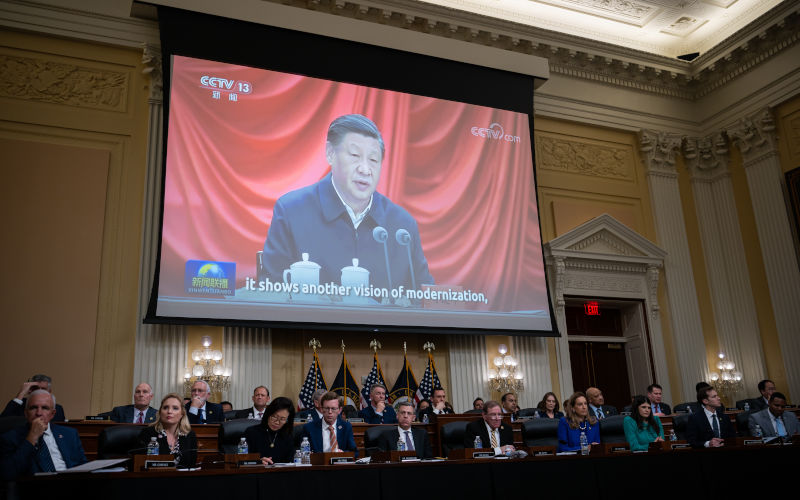Existential threat? Its China that faces the prospect of annihilation
March 14, 2023
Members of a key US House committee wanted anti-Beijing antagonism and that was what they got together with the spectre of armed conflict.
OK, I hope aspiring young reporters and journalism school students wont be reading this column. Thats because I am going to say something I am not supposed to say out loud, but you would have been extremely naive if you ever thought hacks like us would do things otherwise.
Journalists rarely go out to get random quotes for their news reports; we get the quotes we want from people we think are most likely to say them to fit our story angle. Thats why we ask leading questions. If they wont cooperate and give us the right quotes, we will just find someone else who will.
Of course, we are not the only ones who do that. Politicians feigning openness and transparency, such as those in the United States Congress, do that all the time with committee hearings by calling the right kind of witnesses. How do they select witnesses and extract the testimonies they want? Through the exercise of objectivity, impartiality, and balance? If you really think that, there is a guaranteed profit of a million-dollar investment I want to sell you. Just sign here please.
Take the latest hearing of the new House of Representatives Foreign Affairs Committee. The title was, Combating the Generational Challenge of CCP Aggression. One commentator has called it the House launching a cut China down to size committee.
Led by committee members, witnesses did not disappoint. Republican Mike Gallagher, the committees chairman, opened with the following remarks. We may call this a strategic competition, but its not a polite tennis match, he said. This is an existential struggle over what life will look like in the 21st century.
So, Chinese-American relations have become a struggle for existence. Well, thats good to know. Witnesses took the cue. That was the theme of the hearing, the existential threat of the Chinese Communist Party.
Amplifying the China threat, Matt Pottinger, Donald Trumps deputy national security adviser, told the committee that China would not cooperate with the US on anything, yes, literally, on any serious issue. We should not joke to ourselves that Beijing has any interest in collaborating with the United States or others in trying to prevent and mitigate serious problems in the world, he said.
Nothing? Surely there must be some common interests shared between the two great powers. But perhaps the whole point of Pottingers testimony was to pre-empt any search for commonalities. If it was sheer anti-China antagonism the committee wanted, that was what it got. Not to be outdone, H.R. McMaster, the former national security adviser also under Trump, claimed Asian countries were realising there was not a choice to be made whether to side with Washington or Beijing. Its a choice between sovereignty and servitude, he said.
So the Chinese want to enslave them but Americans will defend their freedom. Right! Many countries in the Asia-Pacific prefer a more nuanced and neutral stance, having recognised the power struggle between the two superpowers for what it is. But American policymakers, whether current or former, such as McMaster insist on making the choice for them.
Increasingly, Washington insiders speak in the vocabulary of an existential threat when it comes to China. But what does it even mean?
Any armed conflict would take place on the other side of the globe, far away from the North American continent but right on the doorstep of China. Wouldnt all that be more of a direct existential physical threat to China?
Its conceivable that if push comes to shove, a few thermonuclear Chinese missiles could reach North America, but I would bet many more unimaginable American doomsday weapons would have rained down on Chinese territories long before.
Perhaps what Americans mean is more in line with those funny French existentialists as in the Chinese are causing them angst, anxiety and feelings of existential dread. Meanwhile, in an actual hot war, its the Chinese who will face the very real possibility of physical annihilation.
Philosophy aside, who is more of an existential threat to whom?
First published in The South China Morning Post March 3, 2023

